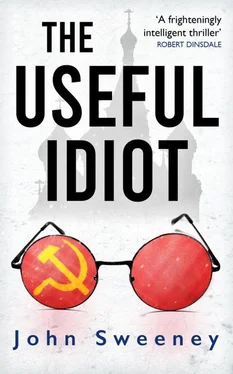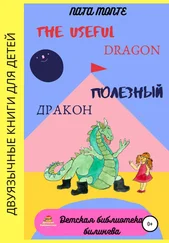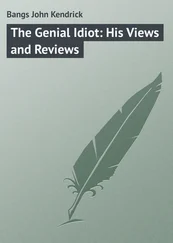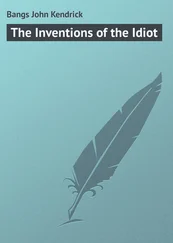John Sweeney - The Useful Idiot
Здесь есть возможность читать онлайн «John Sweeney - The Useful Idiot» весь текст электронной книги совершенно бесплатно (целиком полную версию без сокращений). В некоторых случаях можно слушать аудио, скачать через торрент в формате fb2 и присутствует краткое содержание. Город: London, Год выпуска: 2020, Издательство: Silvertail Books, Жанр: Исторический детектив, Триллер, на английском языке. Описание произведения, (предисловие) а так же отзывы посетителей доступны на портале библиотеки ЛибКат.
- Название:The Useful Idiot
- Автор:
- Издательство:Silvertail Books
- Жанр:
- Год:2020
- Город:London
- ISBN:нет данных
- Рейтинг книги:4 / 5. Голосов: 1
-
Избранное:Добавить в избранное
- Отзывы:
-
Ваша оценка:
- 80
- 1
- 2
- 3
- 4
- 5
The Useful Idiot: краткое содержание, описание и аннотация
Предлагаем к чтению аннотацию, описание, краткое содержание или предисловие (зависит от того, что написал сам автор книги «The Useful Idiot»). Если вы не нашли необходимую информацию о книге — напишите в комментариях, мы постараемся отыскать её.
* * *
The Useful Idiot — читать онлайн бесплатно полную книгу (весь текст) целиком
Ниже представлен текст книги, разбитый по страницам. Система сохранения места последней прочитанной страницы, позволяет с удобством читать онлайн бесплатно книгу «The Useful Idiot», без необходимости каждый раз заново искать на чём Вы остановились. Поставьте закладку, и сможете в любой момент перейти на страницу, на которой закончили чтение.
Интервал:
Закладка:
After they finished the main course, the gypsy band swung vigorously into action and the red curtain parted to reveal Winnie in her distinctive get-up, Soviet boiler suit and black bowler hat. She started out singing a moody jazz number about unrequited love but her voice faltered. The band struggled on for a few more bars, then gave up.
She dipped her head, then began, “I want to dedicate this song to two friends of mine. They’re good people. And I…” Her voice broke. Tears were streaming down her face. “I do not deserve to be called their friend.”
The drummer swished a cymbal, inappropriately. She closed her eyes and the beauty and power of her voice filled the room. The last lines went:
“…Oppressed so hard they could not stand,
Let My people go!”
She stopped once again, the band staring at her, uncomprehending.
From out of a boiler suit pocket she produced a small revolver that gleamed dully in the spotlights. Her hand shaking, she pointed it at the table of dignitaries. Aubyn fell off his chair and dived underneath the table, Limner half-slid to join Aubyn, the Danes stared, unmoving, Duranty looked on, his face a picture of nonchalant amusement.
“It’s a trap, for God’s sake!” said Winnie. “I betrayed you. They said, they said I could go home to New Orleans. That’s why I did it – but they were just lying, lying like they always do… I just overheard them tell Dr Milner there’s no way you two are going on the ship, nor the negress too.”
Jones stood up, started to walk towards her. “Winnie!”
She screamed, “Go!”, then pointed the revolver at her temple and fired.
In seconds, Evgenia and Jones were out of the door and running. Passing a statue of Lenin, they headed downhill towards the docks. The Cheka were chasing them, shouting, blowing whistles, military boots stamping on the cobbles, voices bellowing for them to stop. Jones turned to block them but he was brought down, fists pumping into his back and the side of his head. Evgenia ran on, the letter from Yagoda in one hand, bag in the other; then she too was tripped up. As she fell to the ground, the tin case tumbled out of the bag and under the brilliant moonlight it bounced down, down, down the Odessa steps until it disappeared into the shadows below.
After a time, Lyushkov emerged, the film reel clasped in his sausage-chaped fingers.
Chapter Twenty-Seven
Lyushkov lit a cigarette and studied the smoke coiling upwards through the open window. Jones sat on a chair on the other side of a desk, his left eye a liquid slit in the blue-black pulp the Cheka had made of his face.
“Good news, Mr Jones. Moscow has decided that you are free to go.”
Jones said nothing.
“When your face looks better, naturally.”
“Naturally,” said Jones, deadpan.
Not so far away, a ship’s horn blasted its farewell to Odessa. Much closer, a bird started to trill its welcome to spring, the sweetness of the sound contrasting with the racket from nearby speakers calling for workers to forswear alcohol for the good of New Soviet Man.
“And Evgenia?”
Lyushkov stubbed out his cigarette on the desk and, yawning, stretched himself. Studying Jones all the while, he picked up a pencil from a holder on the table. “Mr Jones, it is my unpleasant task to tell you that Miss Miranova has been diagnosed by eminent doctors of the mind. They have found that she is suffering from acute neurasthenia. As such she is incapable of travel at the current time. You understand?”
“Of course.”
“This talk of famine…”
“What famine?” Jones replied.
The pencil snapped in two. A long pause, then, “We have watched your film, Mr Jones.”
“What film?”
Lyushkov nodded to a figure behind Jones who moved out of the shadows and tapped Jones on the left side of his face with a short metal rod. His arms handcuffed behind his back, Jones offered no resistance, and nor could he. He did his best to suppress a gasp of pain. In that goal, he did not succeed.
After a time, Lyushkov said, “Miss Miranova suffers from the same terrible delusion, perhaps in an even more heightened form.”
“Does she now? Fancy that.” Jones tone was the opposite of respectful.
Lyushkov signalled to the figure in the shadows and the pulp was tap-tapped, more forcefully than before.
Jones gasped and coughed up some blood, then uttered, “May I speak frankly?”
Lyushkov nodded.
“Evgenia and I were last seen alive and well by five witnesses, Professor Aubyn, Dr Limner, Walter Duranty and the two Danes. You’ve got your hooks into the first three, no question. They’re all useful idiots. Hear no evil, speak no evil, see no evil. But the Danes? I don’t think so. So, sooner or later, you’re either going to have kill me or let me go. You’ve only told me that Moscow has decided to let me go for your own amusement. The question that’s eating away at all of you is will I talk about the famine?”
Lyushkov stared at him.
“If I do, you will kill Evgenia,” he whispered. “So I won’t, will I?”
Lyushkov stood up and walked slowly out of the room.
They took him back to the cell. It wasn’t so damp and it wasn’t so cold. There was even a small square window at the top of one wall through which shafts of sunlight could reach him. I’m an honoured guest, thought Jones.
His theory, that the Kremlin wouldn’t like it if he was killed, held true. They fed and watered him and they didn’t touch him for a whole week. But the mental torture was far worse than the physical. Somewhere, close by, somewhere under this same Odessa sky, was Evgenia.
Perhaps.
The left side of his face was still a pale duck-egg blue when the cell door opened and Lyushkov’s bulk filled the doorframe.
“So.”
“How may I assist the Colonel?” Jones’ mock deference was not lost on Lyushkov, but the time for beating had past.
“You are free to go.”
“By ship?”
“By train. I will accompany you to the Polish border.”
“Thank you very much,” said Jones, with icy politeness.
The quickest route to the Soviet-Polish border would have taken less than a day but in the event they travelled for three whole days. Slow trains passed through wildernesses of snow and ice, of dead villages with blackened churches and roofless izbas, past corpses lying this way and that, past fields of weeds, empty and untended because there was no-one left to tend them.
Sometimes the escort, five guards, said something banal to Jones and he replied – but, for the whole of those three days, Jones and Lyushkov did not exchange a word.
They arrived at the border at three o’clock in the morning, Stalin time. It had been snowing but now the stars appeared. The border post was guarded by a machine gun nest and, high above it, a spotlit hammer and sickle, blood-red against the night sky. Outside stood a queue of a hundred or so wretches, shuffling in silence in the frozen air. Lyushkov barrelled to the front of the queue. Just before they entered the post, he turned and smiled bleakly at Jones and said, “Your face looks good now, yes?”
“Yes.”
“No bruises?”
“There were never any bruises.”
“And the famine?”
Jones said nothing. The moon rose, its light casting black shadows from the girder bridge onto the frozen white of the Zbruch river below, reversing reality, as if the entire world could only be seen through a photographer’s negative.
“The famine, Mr Jones?”
“There is no famine, Colonel.”
Lyushkov nodded and handed him his passport and wallet – “nothing missing, Mr Jones” – then pushed open the door. Lenin and Stalin looked down as Jones’s passport was stamped.
Читать дальшеИнтервал:
Закладка:
Похожие книги на «The Useful Idiot»
Представляем Вашему вниманию похожие книги на «The Useful Idiot» списком для выбора. Мы отобрали схожую по названию и смыслу литературу в надежде предоставить читателям больше вариантов отыскать новые, интересные, ещё непрочитанные произведения.
Обсуждение, отзывы о книге «The Useful Idiot» и просто собственные мнения читателей. Оставьте ваши комментарии, напишите, что Вы думаете о произведении, его смысле или главных героях. Укажите что конкретно понравилось, а что нет, и почему Вы так считаете.












